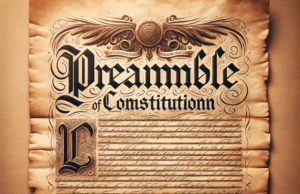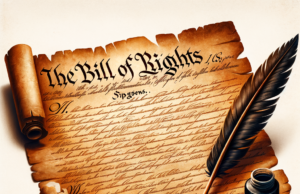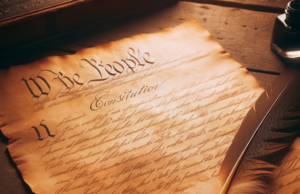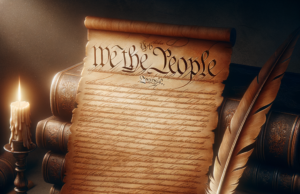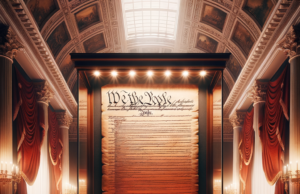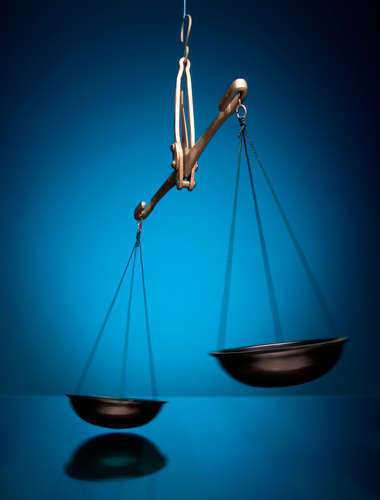
Dred Scott v. Sandford was one of the most significant United States Supreme Court cases and had long-lasting consequences for American society. The case saw a slave named Dred Scott challenging his legal status as property and sparked enormous debates about the powers of the federal government and the role of the courts in American life.
Dred Scott was born into slavery in Virginia in the late 1700s but was taken to Missouri, a free territory, by his owner. Eventually, Scott sued for his freedom, arguing that his residence in a free state made him legally free. However, the case became much more complex as it wound its way up through the courts.
In 1857, the case finally reached the Supreme Court. The court was tasked with deciding on two key issues: whether Scott was legally considered a citizen of Missouri and whether his residence in a free state entitled him to freedom.
The court’s ruling was stunning. The Court held that Scott was not a citizen, primarily because the founding fathers viewed blacks as inferior and not intended to be American citizens. The Court also held that Scott’s time in a free state did not entitle him to his freedom as he technically remained the property of his owner, who had a legal right to own and dispose of his slaves as he wished.
The ruling in Dred Scott v. Sandford effectively denied any hope of freedom for American slaves, deferring to the property rights of slaveholders over the basic rights of individuals. It also set the stage for the Civil War as abolitionists and their supporters viewed the ruling as a grave injustice.
The decision in Dred Scott v. Sandford was disastrous for the country and the Supreme Court’s reputation. The ruling put the court squarely in the spotlight as a political institution, fueling the heated debate over slavery and stoking tensions between the North and South. The decision further entrenched the notion that the Constitution was a pro-slavery document, and it helped propel the country toward the Civil War.
In conclusion, Dred Scott v. Sandford was a watershed Supreme Court decision that remains a touchstone of American history. It demonstrated the power of the Court to shape the nation’s identity and the deep-seated tensions that can arise when the Court’s judgments run counter to the broader social and political trends. Furthermore, it showcased how political conflict can become extraordinarily divisive and how even the most solemn of institutions can become embroiled in it.
The Dred Scott case was an important Supreme Court decision written by Chief Justice Roger B. Taney that has several key elements. First, the Dred Scott decision ruled that slaves and their descendants (even those not born into slavery) were not part of the population protected under the United States Constitution.
This court case held that the Federal Government was not able to abolish slavery in the territories and, consequently, slaves could not be removed from the possession of their owners without due process of the law.
Finally, it held that slaves were unable to become citizens of the The United States and, therefore, unable to file suit in a court of law. Dred Scott was a slave who was owned by John Emerson, a major in the United States Army. Throughout Emerson’s ownership of Scott, he was stationed at several places in the U.S., including the territory of Wisconsin and the State of Illinois. Both of these states were considered free states. During this time, Emerson allowed Scott to marry and experience other freedoms that were not generally allowed for slaves.
In 1837, Emerson was assigned to a military base in St. Louis, Missouri, at which point he left Scott and his wife in the Wisconsin Territory. Soon after, Emerson was transferred to Louisiana where he sent for Scott and his wife. After John Emerson’s death, Dred Scott attempted to purchase his freedom from Emerson’s wife but was unsuccessful. This prompted him to sue Emerson. Scott won his freedom temporarily, but on appeal, the decision was reversed.
In 1853, Scott once again sued for his freedom, this time in Federal court. This is referred to as the Scott v. Sandford case because Emerson’s brother, John Sandford, took over responsibility for the case. When the Missouri Supreme Court once again ruled that Scott was a slave, he appealed this decision to the U.S. Supreme Court.
Although the Supreme Court ruled that Missouri did not have the jurisdiction to make a ruling on the Scott v. Sandford matter, the Court continued on to make several decisions. One issue in the Dred Scott decision was that the Missouri Compromise had made Minnesota a free State and Scott had resided there for some time. The Supreme Court held that Congress did not have the power to declare territories to be free.
The Dred Scott’s decision had a great impact on the economy in the North. The Panic of 1857 ensued because of the uncertainty of the consequences that this court case would have on the existence of slavery in the territories. The railroads that were running east-west through the territories, as well as the banks that financed them, began to collapse.
The Dred Scott case did not have the same influence in the South where the cotton crops continued to thrive because of their use of slave labor. In 1854, the Kansas-Nebraska Act was passed which repealed the Missouri Compromise and allowed territories to determine whether they would be a slave state or a free State. This was seen as an effort by the Supreme Court to greatly expand the use of slavery. Most Southerners believed that, regardless of whether a territory was considered a slave or free State, they should be permitted to freely bring their slaves in and out of the territory.
The Dred Scott decision had many impacts on the issue of slavery. At the same time it weakened the political power of the North, it strengthened their beliefs that slavery should be abolished. Many Northerners reacted to the Dred Scott decision by speaking out against slavery. Even Northerners who reluctantly accepted slavery, as long as it was kept within the boundaries of the South, feared that the Dred Scott decision would expand
the use of slavery into all the territories. As a reaction to the North’s opposition, the South continually made threats to secede. Many Northern opponents to slavery argued that the Dred Scott decision was invalid.
The main finding of the Supreme Court in the Dred Scott the case was that the Missouri Supreme Court did not have jurisdiction to rule on Scott’s freedom because Scott was not a citizen of Missouri. All subsequent rulings, claimed slavery opponents, were unnecessary and invalid because they were not relevant to the case. Basically, Southerners believed the Dred Scott case reinforced their right to own slaves, while Northerners saw the decision as an effort to spread slavery throughout the nation. Dred Scott eventually did receive his freedom. He purchased his emancipation from a man named Peter Blow, who was Scott’s first slave owner, in 1857.










